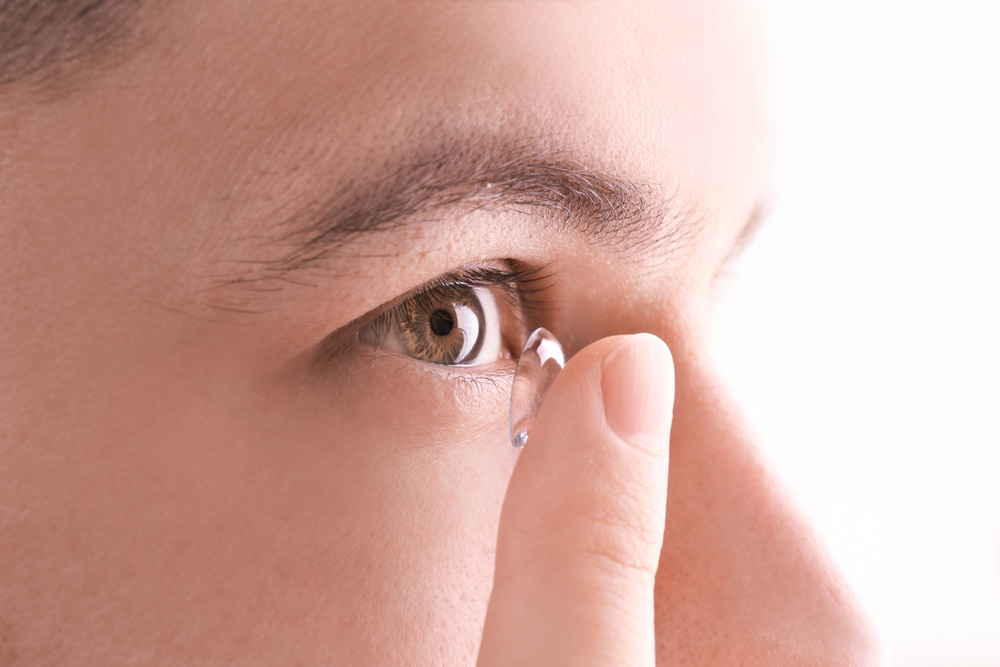
Contact lenses have become an integral part of the lives of millions who prefer them over glasses for various reasons, including aesthetics and convenience. Perhaps you’re considering making the switch yourself, or maybe you’re just curious. From understanding the basics to learning how to take care of them, you'll be equipped with the knowledge to make informed decisions about your eye health and vision needs.
Different Types of Contact Lenses and Their Benefits
Soft contact lenses are the most popular type due to their immediate comfort and ease of use. Made from hydrogel or silicone hydrogel, they allow significant oxygen flow to the cornea, which is vital for maintaining eye health. These lenses are ideal for those with an active lifestyle since they're less likely to dislodge from your eyes during vigorous activities.
RGP lenses are more durable and resistant to deposit buildup, and they offer clearer, crisper vision than soft contact lenses. They can also be more beneficial for certain types of vision problems, such as severe astigmatism. Despite their name, they are breathable and can be a healthier option for your cornea over the long term.
There are also toric lenses for astigmatism, multifocal lenses for those who need help seeing at multiple distances, and orthokeratology lenses that are worn overnight to temporarily correct myopia. Each of these comes with specific benefits tailored to particular vision needs, offering a range of options depending on your unique requirements.
Factors to Consider When Choosing Contact Lenses
When it comes to selecting the right contact lenses, there are several factors to consider. Your lifestyle should play a significant role in this decision. If you're an athlete or frequently engage in outdoor activities, you might benefit from the stability of soft contact lenses or even daily disposables that you can throw away after use. On the other hand, if you work long hours in front of a computer, lenses with high oxygen permeability and moisture retention might be the best fit to keep your eyes comfortable.
Another critical factor is your eye health. Certain eye conditions can influence the type of lenses that are suitable for you. For example, if you have dry eyes, you might require lenses with higher water content or a design that retains moisture better. Your optometrist can guide you through the options that are safe and comfortable for your specific eye health needs.
Lastly, consider the maintenance and care requirements of different lenses. Some contact lenses require daily cleaning and storage in a special solution, while others are designed for one-time use. Your willingness and ability to adhere to these care routines will affect not only the health of your eyes but also the overall convenience and cost-effectiveness of wearing contact lenses.
How to Properly Care for Your Contact Lenses
Proper care for your contact lenses is non-negotiable if you want to maintain good eye health and get the most out of your lenses. Always wash your hands thoroughly with soap and water before handling your lenses. This reduces the risk of transferring dirt and germs to your eyes, which can cause infections or irritation.
For lenses that aren't daily disposables, you'll need to clean and store them in a recommended solution every night. This helps to remove any buildup of deposits and microbes. Make sure to use only the solutions recommended by your optometrist, as not all solutions are suitable for all types of lenses. Never use water or saliva to clean your lenses – these can harbor bacteria that can lead to serious infections.
It's also important to replace your lenses as recommended by your optometrist. Wearing lenses beyond their intended lifespan can lead to discomfort and an increased risk of eye infections. Additionally, replace your lens case every three months to prevent bacteria from contaminating your lenses.
Determining the Best Contact Lenses Suited for You
Consulting with your optometrist is a critical step in the process of getting contact lenses. A comprehensive eye exam will determine the health of your eyes and your specific vision correction needs. Your optometrist will take precise measurements of your eyes and evaluate factors such as tear production, cornea shape, and lifestyle to recommend the best type of lenses for you.
Additionally, your optometrist can provide valuable insights into the different types of contacts and their benefits, helping you understand which options will best suit your individual needs. They will also instruct you on the correct way to insert, remove, and care for your lenses to ensure you are comfortable handling them before you leave their office.
Regular check-ups are essential for monitoring the health of your eyes and making any necessary adjustments to your prescription or lens type.
Schedule Your Contact Lens Exam with Dr. Timothy P Kenkel and Associates Today
Embarking on the journey of using contact lenses can be an exciting and liberating experience. You have the opportunity to enjoy clear vision without the constraints of glasses. However, it's essential to approach this new venture with care and responsibility. Understand the different types of contacts and their benefits, consider the factors when choosing the right lenses, and always consult with your optometrist for the best fit.
To schedule your contact lens exam or for further guidance on contact lens options best suited for your visual needs and lifestyle, visit Dr. Timothy P Kenkel and Associates at our offices in Cincinnati, Ohio. Please call (513) 661-4450 to book your appointment at our Glenway location today.








